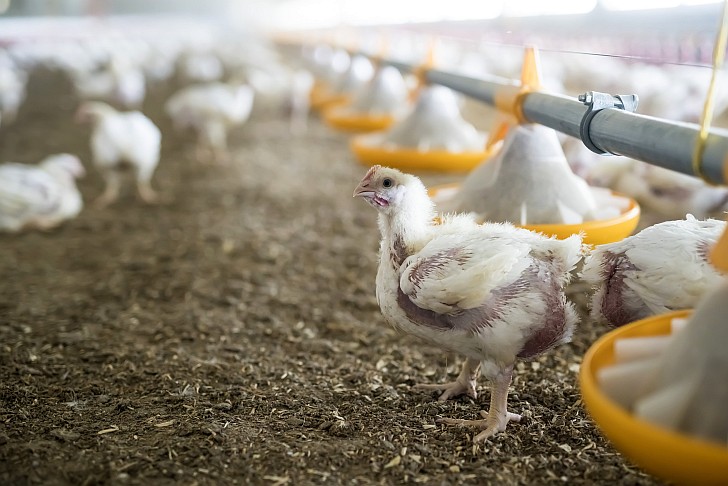Feeding chickens in a low carbon world will need a realistic transition period
 Cost challenges highlight the need to maintain feed efficiency and productivity
Cost challenges highlight the need to maintain feed efficiency and productivity
Current cost challenges are underlining the importance of improving feed efficiency and productivity, and this will be even more prevalent if the broiler industry is to meet sustainability requirements and Net Zero goals, warns a leading poultry nutritionist.
 Adjusting poultry diets to meet sustainability requirements, and specifically reducing the reliance on soya, will bring significant challenges and will require realistic timeframes, says ABN senior nutrition manager Brian Kenyon.
Adjusting poultry diets to meet sustainability requirements, and specifically reducing the reliance on soya, will bring significant challenges and will require realistic timeframes, says ABN senior nutrition manager Brian Kenyon.
Speaking at the recent Northern Broiler Conference, Mr Kenyon insisted he has confidence in the industry’s ability to adapt and improve its sustainability credentials, but it will require a joined-up approach to overcome the challenges ahead.
“Feed today is very much valued on a ‘least cost’ basis, but is moving towards a greater emphasis on a ‘least carbon’ basis. However, these two factors frequently oppose each other,” he explains.
“Reducing the carbon value of the feed, or more precisely soya, increases today’s feed prices and therefore the cost of production, but by looking at efficiency and productivity, alongside sustainability, we can help bring a cost balance for the producer,” he adds.
Soya meal itself can be replaced by a number of existing materials such as beans and rapeseed, though time and effort will be needed to develop the right enzymes and processing techniques needed to maximise their effectiveness.
Alternative products such as insect meal, single-celled organisms and co-products of the food and energy industry are either not widely available or not ready for mass production.

“While we are constantly evaluating our product range and refining it to meet today’s demands, we are at the same time looking at potential alternative raw materials to see how they could fit into a productive feeding programme,” says Mr Kenyon.
He calls for a realistic transition action plan, recognising that a complete move away from soya cannot happen overnight, and a pragmatic approach would be to work towards a five-year roadmap to ensure availability of high-performing and sustainable alternatives.
“An industry-managed transition to reducing soya, with an extended timeframe, would allow a secure supply chain to be set up, with the arable sector able to scale up the right crops, preventing demand from outstripping the UK’s cropping cycles and further exacerbating price rises,” says Mr Kenyon.
“I am confident as an industry we can overcome the challenges and improve the sustainability credentials of poultry production in the UK, but it will require a joined-up approach across the entire supply chain,” he concludes. www.abn.co.uk




